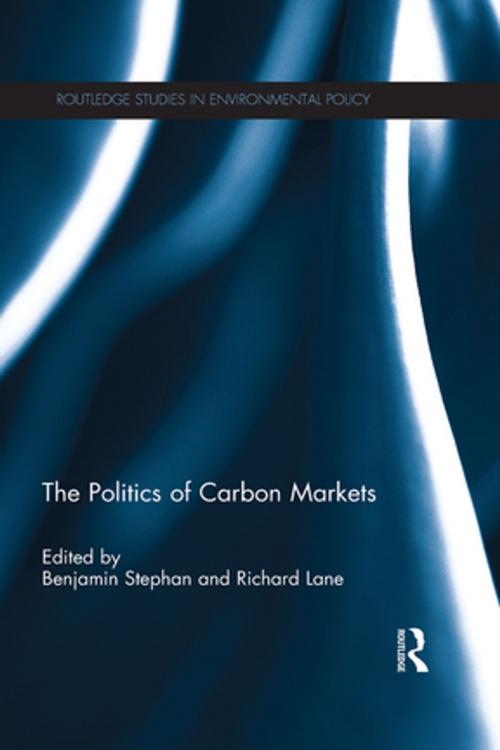The Politics of Carbon Markets
Business & Finance, Economics, Sustainable Development, Economic Development| Author: | ISBN: | 9781134590124 | |
| Publisher: | Taylor and Francis | Publication: | August 27, 2014 |
| Imprint: | Routledge | Language: | English |
| Author: | |
| ISBN: | 9781134590124 |
| Publisher: | Taylor and Francis |
| Publication: | August 27, 2014 |
| Imprint: | Routledge |
| Language: | English |
The carbon markets are in the middle of a fundamental crisis - a crisis marked by collapsing prices, fleeing actors, and ever increasing greenhouse gas levels. Yet carbon trading remains at the heart of global attempts to respond to climate change. Not only this, but markets continue to proliferate - particularly in the Global South.
The Politics of Carbon Markets helps to make sense of this paradox and brings two urgently needed insights to the analysis of carbon markets. First, the markets must be understood in relation to the politics involved in their development, maintenance and opposition. Second, this politics is multiform and pervasive. Implementation of new techniques and measuring tools, policy development and contestation, and the structuring context of institutional settings and macro-social forces all involve a variety of political actors and create new forms of political agency. The contributions study the total extent of the carbon markets, from their prehistory to their contemporary expansion and wider impacts.
This wide-ranging political perspective on the carbon markets is invaluable to those studying and interested in ecological markets, climate change governance and environmental politics.
The carbon markets are in the middle of a fundamental crisis - a crisis marked by collapsing prices, fleeing actors, and ever increasing greenhouse gas levels. Yet carbon trading remains at the heart of global attempts to respond to climate change. Not only this, but markets continue to proliferate - particularly in the Global South.
The Politics of Carbon Markets helps to make sense of this paradox and brings two urgently needed insights to the analysis of carbon markets. First, the markets must be understood in relation to the politics involved in their development, maintenance and opposition. Second, this politics is multiform and pervasive. Implementation of new techniques and measuring tools, policy development and contestation, and the structuring context of institutional settings and macro-social forces all involve a variety of political actors and create new forms of political agency. The contributions study the total extent of the carbon markets, from their prehistory to their contemporary expansion and wider impacts.
This wide-ranging political perspective on the carbon markets is invaluable to those studying and interested in ecological markets, climate change governance and environmental politics.















